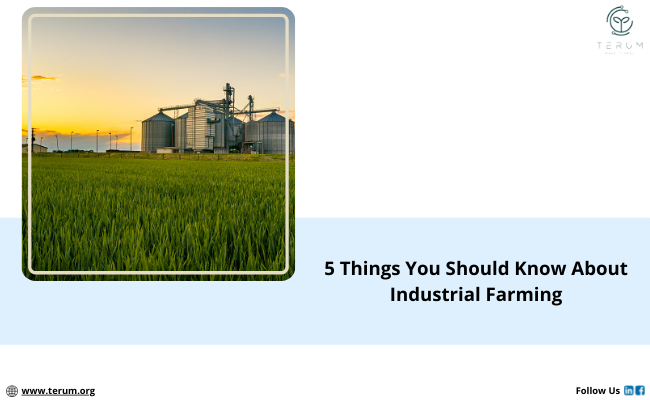Earlier, industrial agriculture had a high growth rate compared to other agriculture fields. However, due to the use of synthetic fertilizers, chemical pesticides, and high yield cereal hybrid, there is a reduction in industrial agriculture. It led to a decline in agriculture and resulted in global food shortages. But not everything was anticipated. After some time, some serious concerns are raised about the production of food with industrial agriculture.
Before you indulge in industrial farming, there are some things that you need to know. These will guide you about the impact of industrial agriculture and the effects of modern agriculture on the environment and public health. Therefore, it is essential together complete information about them so that no adverse and harmful effects are available.
From the following information, you can learn about the things related to industrial farming. Efficient farming is not only related to production, but it is all about sustainability and public health, according to the environmental program manager. To get it, you can check out the following information.
Facilitate this spread of viruses from animals to humans
One of the main things you need to know is the genetic diversity between animals with natural disease resistance. It makes them more susceptible when it comes to the spreading of the virus. Intense livestock farming is one of the effects of modern agriculture.
Industrial agriculture, with the fierce livestock practice, is vulnerable to passing the disease from wild animals to farm animals and then to humans. So there is a need to learn about it before you start industrial agriculture.
Industrial agriculture is linked to zoonotic diseases
The clearing of the forest and the killing of the wildlife provide more space for agriculture. The farms located near the urban area are responsible for destroying and buffering nature.
As a result, the humans who are protected from the diseases are now circulating among wildlife. It is so because there is an increase in demand for animal protein for unsustainable agriculture methods. Thus, there is the emergence of zoonotic diseases.
Industrial agriculture includes pesticides with adverse health effects
Do not forget that industrial agriculture includes large volumes of chemical fertilizers and pesticides. These are beneficial for increasing agriculture yields but dangerous for human health. If humans consume food with pesticides, then they have to suffer from adverse effects of pesticides and foods on health.
Some pesticides disturb reproductive functions and increase the chances of breast cancer. Therefore, the collection of information about it is essential to use the correct methods.
Industrial agriculture contaminates water and soil
Agriculture contributes significantly to pollution by discharging vast amounts of manure, pesticides, antibiotics, and growth hormones into waterways. Both aquatic ecosystems and human health are in danger as a result of this. The most prevalent chemical contamination in agriculture, nitrate, can induce “blue baby syndrome,” which can result in newborn death.
Obesity and chronic disease epidemics have resulted as a result
Industrial agriculture primarily produces commodity crops, which are then employed in a wide range of low-cost, calorie-dense foods that are widely available. As a result, only three cereal crops–rice, maize, and wheat–provide 60% of total dietary energy.
While this calorie-based method has successfully reduced the proportion of hungry individuals, it falls short of nutritional recommendations, such as those for the consumption of fruits, vegetables, and legumes. In practically every community, the popularity of processed, packaged, and prepared foods have risen. Obesity is also on the rise around the world, and many people are suffering from diet-related ailments such as heart disease, stroke, diabetes, and cancer.
Read More:







Comments